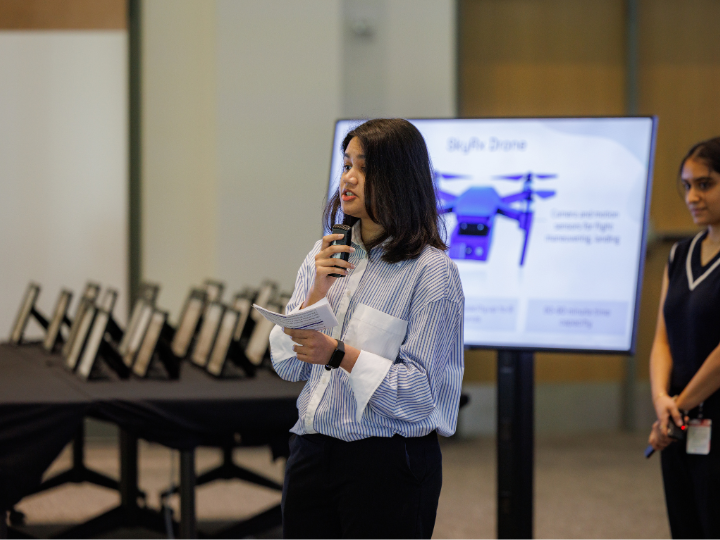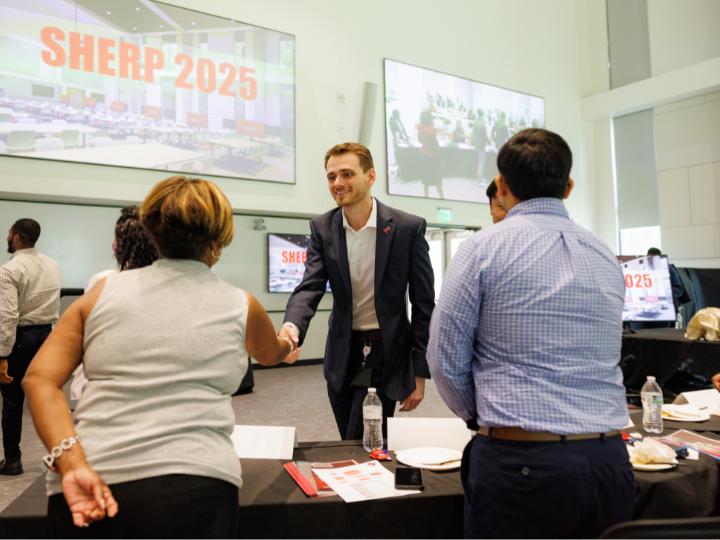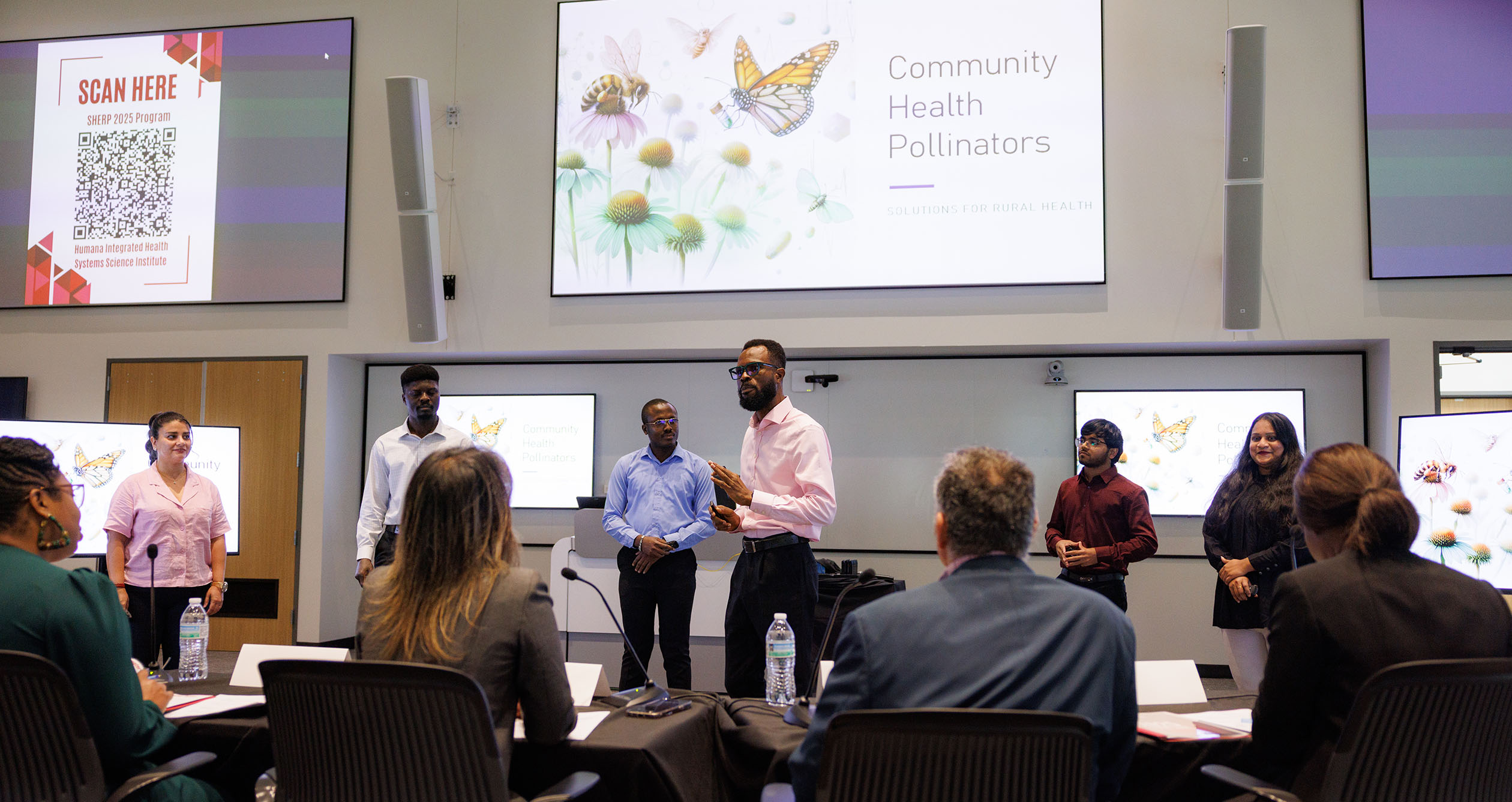More than two dozen University of Houston students tackled some of society’s most pressing health issues in an immersive program that culminated in a Shark Tank-style competition, where they pitched bold, innovative solutions to transform health care.
The fifth annual Summer Health Research Program, sponsored by UH’s Humana Institute, was a three-week program that gave interdisciplinary teams of students an opportunity to collaborate across disciplines in a health care data-thon and present their solutions to a panel of industry experts.
“The Summer Health Research Program let students take on some of today’s most urgent health care challenges with fresh, innovative thinking using real-world data. By bringing together diverse perspectives from across campus, they learned how to collaborate, problem-solve and pitch solutions that could one day improve health outcomes.”
– Dr. Lola Adepoju, director of the Humana Institute at UH
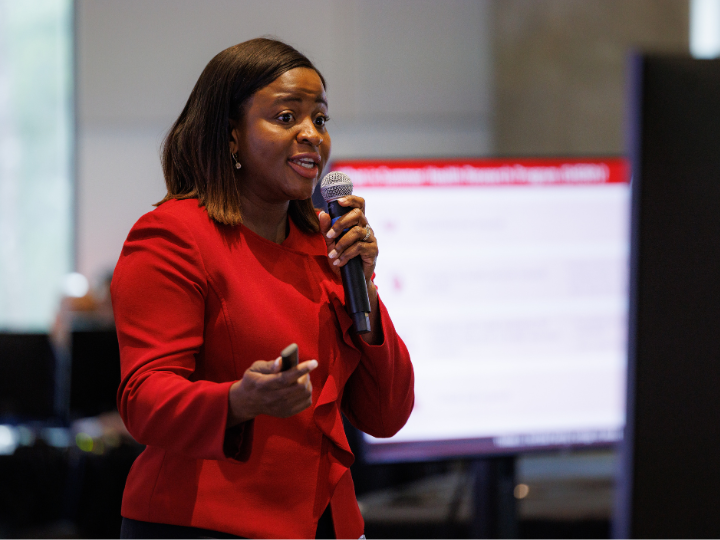
The competition featured graduate students from the Tilman J. Fertitta Family College of Medicine, College of Education, C. T. Bauer College of Business, Graduate College of Social Work, College of Optometry, Cullen College of Engineering and the College of Liberal Arts and Social Sciences working together in teams on one of five focus areas where persistent gaps in health outcomes remain, and which represent some of the most urgent, forward-looking challenges in population health:
- Resilience in Chaos: Mitigating Disruptions in Health Care Amid Successive Disasters
- Building Community Connections to Enhance Advocacy and Treatment for Sickle Cell Disease
- Familiar Faces, Caring Spaces: Enhancing Home-based Dementia Care
- Strengthening HIV Services and Addressing Ongoing Challenges in the Epidemic
- Beyond the City Limits: Strengthening the Rural Health Care Workforce
Each team used data provided by the Humana Institute to identify key issues and challenges and then developed a practical solution to present to the panel. The program judges (aka “sharks”) included Richard Ebern, CEO of the Alzheimer’s Association; Lisa Spivey, director of preparedness at the SouthEast Texas Regional Advisory Council; Dr. Adelola Ashaye, founder and chief medical officer at Intouch Primary Care; Dr. Renita Madu, assistant director of the Houston Health Department; Nidhi Malpani, vice president of strategy and planning at HCA Healthcare; and Dr. Imran Ahmed, assistant professor at MD Anderson Cancer Center.
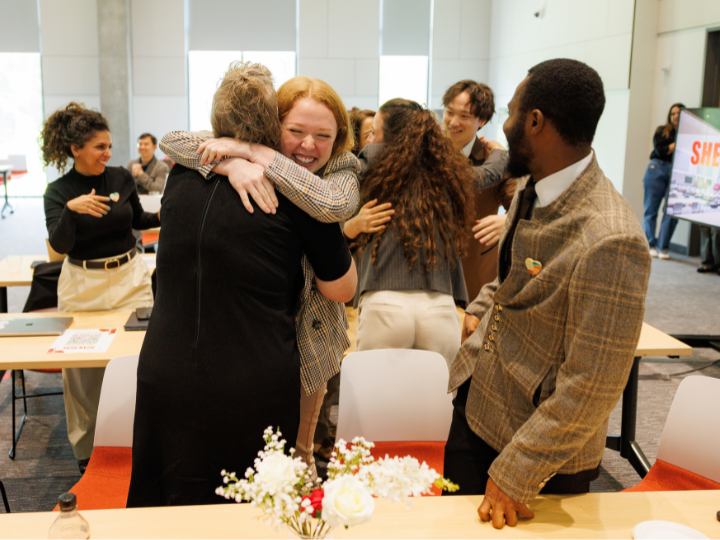
While top honors went to the dementia care team, the sharks were impressed by all of the innovative ideas, with each presentation reinforcing the promise of data-driven solutions to health care problems.
“Winning the competition was never our goal, but it gives us the opportunity to continue this research, bring our intervention to fruition and improve dementia caregiving across the country,” said Abigayle Hoeft, a member of the winning team and a second-year medical student at the Fertitta College of Medicine. “We now have the encouragement to keep moving forward.”
“SHERP was a unique opportunity to collaborate with a diverse group on real-world scenarios, specifically the fight against sickle cell diseases,” said Peterkings Jokoh, a second-year Ph.D. student in pharmaceutical health outcomes and policy research at the UH College of Pharmacy. “The data showed us that sickle cell is often underreported with limited public education and insufficient knowledge even among health care providers, so we centered our solution on reversing that trend.”
Reflecting on the impact of another successful SHERP, Adepoju emphasized the importance of an interdisciplinary approach in shaping the future of health care.
“While only one team was named the winner, every student has encouraged us to think bigger and deepen our commitment to improving not just patient outcomes, but the health care system as a whole.” Adepoju said. “The Humana Institute is dedicated to training future health care leaders to deliver collaborative, high-value care to improve health outcomes. This year’s program was a powerful reminder that when we invest in students and foster interdisciplinary collaboration, we pave the way for a smarter, more equitable and more innovative future in health care.”
